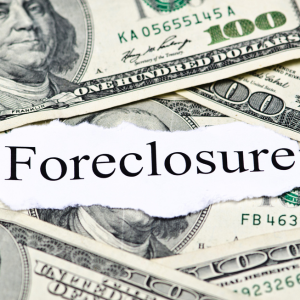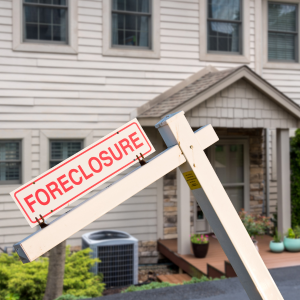
Understanding Foreclosure Laws in Texas: Key Points for Homebuyers
People who want to buy a home in Texas, especially those who have been through foreclosure before, need to know the rules about it. Texas’s foreclosure process is not based on the courts, so that it can happen more quickly than in states with legal processes.
The Texas Property Code regulates this expedited procedure and delineates the processes lenders must adhere to to foreclose a property. Potential buyers with prior foreclosures should understand that Texas law does not provide a statutory right of redemption, so once the lender finalizes the foreclosure sale, the original homeowner cannot reclaim the property by paying off the debt.
Homebuyers must be cognizant of deficiency judgments; in Texas, lenders may seek recourse against borrowers for any outstanding debt if the property sells for an amount lower than the owed balance. Comprehending these factors might assist purchasers in maneuvering through the intricacies of acquiring a new residence while addressing prior financial challenges associated with foreclosures.
Familiarity with these laws empowers buyers to make informed decisions and negotiate better terms during real estate transactions in Texas. Here’s how Cima Real Estate can help.
The Impact of Foreclosures on Your Credit Score and How to Improve It
If you lose your house to foreclosure, your credit score could drop by 100 points or more. Limited financing options can make it tougher to find a home in Texas. Finding solutions to improve is crucial because this unfavorable mark will linger on your credit report for seven years.

To enhance your credit score after a foreclosure, it’s crucial to consistently make timely payments on existing debts and reduce outstanding balances. You can build a positive credit history by using secured credit cards or becoming an authorized user on an account in good standing.
Monitoring your credit report regularly helps you identify and dispute any inaccuracies that might further harm your score. In Texas, lenders may view a foreclosure less severely if you demonstrate financial stability and responsibility in the ensuing years.
Take charge of your money and prioritize debt repayment to improve your creditworthiness and chances of obtaining favorable mortgage conditions when buying a home in Texas.
Overcoming Credit Challenges After Foreclosure When Buying a House
In the Texas real estate market, overcoming credit issues following a foreclosure is a significant obstacle for many prospective homebuyers. However, you can overcome these challenges with careful financial management and strategic planning.
Begin by analyzing your credit record to determine the impact of the foreclosure and any problems that need to be corrected. To improve your credit score, prioritize timely payments and debt reduction.
Consider working with financial advisors or credit counselors who can guide you through your situation. Saving for a larger down payment can also improve your chances of securing a mortgage from lenders willing to consider applicants with past foreclosures.
Research diverse loan options, such as those offered by the Federal Housing Administration (FHA), which may have more lenient requirements for individuals recovering from foreclosure. Establishing a positive payment history post-foreclosure demonstrates financial responsibility and reassures potential lenders of your commitment to maintaining home ownership responsibly.
Mortgage Options for Buyers with a Foreclosure History in Texas
Navigating the Texas real estate market as a buyer with a foreclosure on your record can be challenging, but mortgage options that cater to your situation are available. Understanding these options is crucial for potential homebuyers in Texas looking to secure financing post-foreclosure.
FHA loans are a common choice for those with a foreclosure history due to their lenient credit requirements and lower payment necessities. The FHA typically requires a waiting period of three years after foreclosure, which gives buyers time to rebuild their credit.
Also, VA loans are an excellent choice for veterans in Texas because they have low interest rates and don’t require a down payment. However, there are some rules for people who have been through foreclosure. Portfolio loans are a type of loan that doesn’t follow the usual rules for giving money. They can be flexible for people with complicated financial histories.
It’s essential to demonstrate financial stability through improved credit scores, consistent income, and responsible debt management when applying for any mortgage in Texas after experiencing foreclosure. Consulting with experienced mortgage brokers or real estate professionals familiar with the Texas market can also help identify the best loan products tailored to your needs while navigating this complex process.
Legal Rights and Protections for Homebuyers with Foreclosed Histories
When buying a home in Texas with a foreclosure on your record, it is crucial to understand the legal rights and protections available to you as a prospective homebuyer. Texas law provides certain safeguards to ensure fair treatment during the mortgage application process.
Lenders must follow federal laws, including the Fair Housing Act and Equal Credit Opportunity Act, which ban credit history-based discrimination. The Federal Housing Administration (FHA) offers loans to foreclosure victims with reduced down payments and more lenient credit score standards.
Buyers must check their credit reports for accuracy, as discrepancies can adversely affect loan eligibility. Legal resources and housing counselors can provide guidance through this process, helping buyers understand their rights and how best to navigate potential challenges in obtaining financing.
Awareness of these protections in the competitive Texas real estate market enables individuals with foreclosure histories to make informed decisions. Contact Cima Real Estate to learn more.
Navigating the Housing Market as a Buyer with Past Foreclosures
Navigating the Texas real estate market as a buyer with a past foreclosure can be challenging, but it is not impossible. Understanding your credit report and improving your credit score is crucial to rebuilding financial credibility.
Texas lenders generally look closely at an applicant’s past, so showing that you are financially stable and saving for a bigger down payment will help you get a mortgage. Buyers with foreclosures on their records might want to look into FHA loans, which have less strict credit standards.
Also, working with real estate brokers who have worked with people who have had foreclosures in the past will help you find the best homes and neighborhoods in Texas. These experts know a lot about the details of local markets and can help you find possibilities that meet your budget and long-term goals.
Building strong relationships with lenders, maintaining steady employment, and showing consistent financial habits will also aid in navigating this complex housing landscape successfully.
Working with Real Estate Professionals Specializing in Post-foreclosure Purchases
When navigating the Texas real estate market, especially if you have a foreclosure on your record, finding a real estate professional who specializes in post-foreclosure transactions is critical. These professionals have the knowledge and experience to help you navigate the challenges of buying a home after foreclosure.
They possess a comprehensive understanding of the intricacies of Texas property laws and have established relationships with lenders who may be more amenable to collaborating with purchasers who have experienced financial setbacks. These agents can identify suitable properties that meet your criteria while considering any restrictions your foreclosure history may impose.
With their assistance, you can investigate financing options for individuals rehabilitating their credit and negotiate terms compatible with your current financial circumstances. Despite past challenges, you can increase your chances of securing a new home by utilizing your experience to obtain valuable insights into market trends and strategies.
Alternative Financing Solutions for Buyers with Prior Foreclosures
The Texas real estate market can be hard to understand, especially for people who have been through a loss. However, many other financial options can help these people buy a home.
Consider FHA loans, which are government-backed and have fewer credit criteria. Because banks keep portfolio loans in-house instead of selling them on the secondary market, they can set specific terms to accommodate past financial issues.
Another potential path is through lease-to-own agreements, enabling buyers to build equity while gradually improving their credit score over time. Hard money lenders also present an opportunity for those needing quick access to funds despite prior foreclosures; these private investors focus more on the property’s value than solely on credit history.
You may find special programs designed for individuals rebuilding their finances after foreclosure by exploring local credit unions. Prospective purchasers in Texas can identify viable pathways to homeownership, despite any prior financial setbacks, by considering these diverse financing options.
The Role of Credit Counseling in Preparing to Buy Again After Foreclosure

Credit counseling is crucial in preparing individuals to repurchase a home after experiencing foreclosure in the Texas real estate market. This process involves working closely with a certified credit counselor who helps prospective buyers understand their financial situation and develop effective strategies to improve their credit score.
By examining the causes of foreclosure, credit counseling offers customized advice on managing finances, reducing debt, and developing sound financial practices. When handling mortgage applications and obtaining advantageous loan terms, homeowners need to know how to repair their creditworthiness, which these seminars equip them with.
Additionally, credit counseling can offer insights into specific programs available for individuals recovering from foreclosure, making it an invaluable resource for those eager to re-enter the competitive Texas housing market. Through dedicated effort and professional support, potential buyers can enhance their financial stability and increase their chances of success in purchasing a new home.
Evaluating Neighborhoods and Property Types Suited to Post-foreclosure Buyers
When buying a home in Texas after a foreclosure, it’s essential for buyers to carefully look at neighborhoods and types of homes that fit their financial goals and personal needs. Focusing on growing locations can lead to appreciation, which is excellent for buyers who want to recover equity after a foreclosure.
It’s good to think about properties like single-family homes or townhouses that could be valuable and stable in a neighborhood. Looking at school districts, local amenities, and crime rates can help you find neighborhoods good for long-term investment.
In Texas cities like Austin, Dallas, or Houston, emerging neighborhoods often present more affordable options with room for growth. Buyers should also assess proximity to employment centers and transportation hubs to ensure convenience and potential resale value.
By understanding key factors, buyers recovering from foreclosure can invest wisely in seller-financed real estate for sale in Richardson and other cities in Texas that support their long-term financial goals.
Comparing Conventional Loans and FHA Loans for Post-foreclosure Buyers
It is essential for post-foreclosure buyers navigating the Texas real estate market to comprehend the distinctions between conventional and FHA loans. Those who have recently experienced a foreclosure may find it more difficult to obtain traditional loans because they usually require a larger down payment and a higher credit score. For debtors who can fulfill these conditions, they might eventually provide better terms. The FHA created more lenient loan terms for people getting over financial hardships like foreclosure. With reduced requirements for credit scores and down payments as low as
5% FHA loans provide a viable option for many buyers who need to re-establish their homeownership status after experiencing foreclosure. Furthermore, FHA guidelines generally allow borrowers to apply sooner after foreclosure, typically three years, compared to the conventional loan waiting period of up to seven years. Both loan types have distinct advantages and potential drawbacks depending on your financial situation, so evaluating your eligibility and understanding how each loan aligns with your current needs is essential when considering buying a home in Texas after foreclosure.
Understanding the Seller’s Perspective on Offers From Post-foreclosure Buyers
If you’re a buyer in Texas with a foreclosure on your record, it’s essential to grasp the seller’s point of view. Sellers frequently prefer offers from purchasers with good credit histories, so having a foreclosure can make them worry about your reliability and financial stability.
However, demonstrating that you have recovered financially is crucial in gaining their confidence. Documentation of improved credit scores, stable income, and consistent employment history can help alleviate these concerns.
Additionally, making a higher down payment or getting pre-approved for a mortgage helps reassure sellers of your dedication and capacity to complete the transaction. Understanding that sellers may be hesitant due to previous foreclosure experiences lets you immediately address their concerns by demonstrating your current financial health and being ready to buy in the competitive Texas real estate market.
Essential Documents Needed for Home Purchase After Foreclosure
When purchasing a home in Texas post-foreclosure, compiling necessary documentation that exhibits financial soundness and preparedness to lenders is imperative. Begin by acquiring a detailed credit report, which will elucidate your current credit status and assist in identifying any inaccuracies requiring rectification.
Moreover, possessing current pay stubs or income verification is essential to demonstrate your capacity to fulfill future mortgage obligations. Lenders will also want tax returns from the preceding two years to authenticate stable income levels.
A letter of explanation regarding the circumstances surrounding the foreclosure can further illustrate your improved financial management skills and commitment to maintaining a stable home environment. Documentation of any debt repayment plans or settlements since the foreclosure can also be beneficial, as it shows steps taken towards rectifying past financial issues.
Finally, a pre-approval letter from a lender can fortify your status as a serious buyer in the competitive Texas real estate market, facilitating successful homeownership despite prior setbacks.
Financial Planning Tips for Prospective Buyers with Previous Foreclosures
Meticulous financial planning is essential when navigating the Texas real estate market as a prospective homebuyer with a foreclosure on your record. To increase your credit score after a foreclosure, start by analyzing your credit report and making regular payments to existing debts.
Lenders will look more closely at your financial security if you don’t have a steady source of income. You can also improve your mortgage chances by saving for a bigger down payment. Demonstrating financial responsibility reassures lenders that you are a low-risk borrower.
If you’ve been through foreclosure before, you might want to work with a mortgage broker who specializes in helping people like you find lenders who are willing to work with you and walk you through your loan choices. Looking into government-backed programs like FHA loans might open up more doors, since they usually have less strict standards for people who have had financial setbacks.
With the right strategies, you can successfully purchase a home in Texas, including seller-financed homes for sale in Frisco and nearby cities in Texas, even after a foreclosure.
Rebuilding Trust with Lenders: Establishing Credibility Post-foreclosure
Rebuilding trust with lenders after a foreclosure is crucial for anyone looking to navigate the Texas real estate market successfully. Establishing credibility post-foreclosure involves demonstrating financial responsibility and stability.
One way to increase your credit score is to pay your bills on time and pay off whatever debt you already have. Lenders in Texas will look closely at your credit history, so it’s essential to establish that you have a history of being responsible with money.
Moreover, accumulating a substantial down payment might demonstrate dedication and dependability, enhancing your appeal as a candidate for house loans. Interacting with local lenders knowledgeable about Texas real estate might yield significant insights and opportunities specific to your circumstances.
Building relationships with these financial institutions through open communication about your circumstances can further enhance trust. By taking proactive steps such as creating a detailed budget plan and securing steady employment, potential homebuyers can gradually rebuild their reputation in the eyes of lenders, increasing their chances of purchasing a new home even with a foreclosure on their record.
Can You Buy a House with a Foreclosure on Your Record
Buying a house with a foreclosure on your record in the Texas real estate market can be challenging, but it is certainly possible with the right strategies and preparation. This process requires understanding how a previous foreclosure impacts your credit score and loan eligibility.
Rebuilding your credit through timely bill payments and debt reduction is essential since lenders usually see foreclosure as a warning sign. Understanding the waiting time requirements set by mortgage programs is also crucial; for example, FHA loans may require you to wait three years following a foreclosure before applying for them again.
Saving for a bigger down payment also shows that you are responsible with your money, which could help you get approved by lenders. Working with real estate experts who are knowledgeable about the Texas market and have a lot of experience can help you find homes that meet your needs and help you negotiate.
Ultimately, tenacity and meticulous financial strategizing are essential when purchasing a property with a foreclosure on your record in Texas’s competitive real estate market.
How to Buy a House in Foreclosure in Texas
Navigating the Texas real estate market can be challenging, especially when looking to buy a house in foreclosure. Understanding the process of purchasing a foreclosed property due to bankruptcy or another reason is crucial for potential buyers.

Since Texas foreclosure rules can vary from those in other states, start by becoming familiar with them. Most foreclosures in Texas are non-judicial, which means they take place without the involvement of a judge.
Commence by seeking listings of foreclosed properties via local real estate professionals, digital platforms, or banking websites. Conducting comprehensive due diligence on each property, examining its condition and any outstanding liens or connected debts, is vital.
Financing options may vary; however, obtaining pre-approval from lenders specializing in foreclosure properties can streamline your buying process. Additionally, attending foreclosure auctions requires preparation; ensure you have sufficient funds ready for deposit if you win a bid.
Partnering with a knowledgeable house buyer experienced in Texas foreclosures can provide valuable insights and guidance throughout your home-buying journey. By understanding these key steps and staying informed about market trends, you can successfully navigate purchasing a home in foreclosure within the competitive Texas real estate landscape.
How Soon After a Foreclosure Can I Buy a House
How soon after foreclosure you can buy a house in Texas largely depends on the loan type you seek. For conventional loans, lenders typically require a waiting period of seven years after a foreclosure.
However, specific programs or extenuating circumstances can reduce the waiting period to three years if you qualify. FHA loans present an alternative with a shorter waiting period of three years post-foreclosure, provided that the borrower meets specific credit score requirements and has re-established good credit.
VA loans offer even more flexibility for eligible veterans, sometimes allowing home purchases just two years after foreclosure. It’s crucial to use this time to rebuild your credit score by paying all bills on time and reducing debt.
Consulting with real estate professionals who specialize in Texas real estate can help you navigate the complexities and explore potential options that suit your financial situation.
How Long Does a Foreclosure Stay on Your Record in Texas
In Texas, a foreclosure can significantly impact your ability to buy a home, as it typically remains on your credit report for seven years from the date of the first missed payment that led to the foreclosure. This period can be daunting for prospective homebuyers with a foreclosure on their record, as it affects credit scores and loan eligibility.
Despite this challenge, navigating the Texas real estate market is still possible by understanding how lenders evaluate foreclosures during the mortgage approval process. Many lenders in Texas may require a waiting period before approving a new mortgage application; however, there are strategies to improve your chances.
Improving your credit score, saving for a larger down payment, and demonstrating stable income can help mitigate the effects of a foreclosure on your record. Additionally, exploring options like FHA loans or working with a specialized real estate professional familiar with post-foreclosure buying can enhance your potential to successfully purchase a home in Texas, even with this blemish on your financial history.
Interested in selling with owner financing or have questions? Call us at (469) 770-7478 for a no-obligation consultation. Get started today!
| FORECLOSURE SALES | JUDICIAL FORECLOSURES | FORECLOSURE RATES | FORECLOSURE DEFENSE STRATEGIES | HOMEBUYING | MORTGAGE LENDERS |
| LOAN APPLICATION | CREDITORS | ATTORNEY | INFORMATION | DEFAULT | REAL ESTATE LAW |
| LIENHOLDERS | HOME EQUITY | SUED | LAWSUIT | NOTICE OF DEFAULT | BANKRUPTCY |
| U.S. DEPARTMENT OF VETERANS AFFAIRS (VA) | U.S. | COURTHOUSE | CONSUMERS | USDA | USDA LOANS |
| SHORT SALE | REFINANCE | COUNTY CLERK | LOAN MODIFICATIONS | LEGAL ADVICE | INVESTMENTS |
| HOMEOWNER’S ASSOCIATION | HOME EQUITY LOANS | HELOC | FEES | EQUIFAX | DEED IN LIEU OF FORECLOSURE |
| DEED-IN-LIEU OF FORECLOSURE | DATA | CASH | BANKING | THE FORECLOSURE PROCESS |